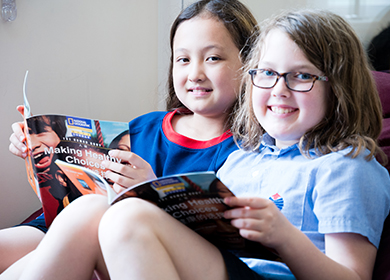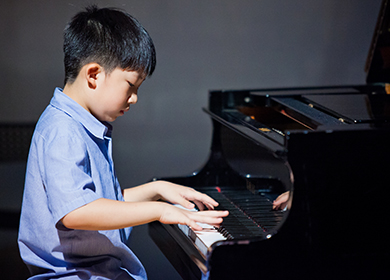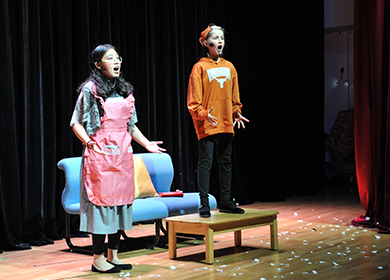Go Back
News
News
Creating An Ethic of Excellence
News
10 Jan, 2020
10 : 00
On Monday, January 6th the gates at the Yew Chung International School of Beijing opened for our staff to kick-start the second half the school year. To get the entire staff enthusiastic and motivated for the new semester, Mr. Mark Adams, our Regional Director, gave a workshop based on Ron Berger’s book, “An Ethic of Excellence”.
During his presentation, Mr. Adams spoke extensively about how as a school we can work collectively towards excellence not only in our work in education but aspire to excellence in other areas of our lives as well.
We spoke to Mr. James Sweeney, Primary Vice-Principal, about what was shared in this workshop and how we, at YCIS Beijing, strive to achieve excellence on a daily basis, touching upon the five most important points to take away from the book.
1. Caring
It is important to ensure that teachers and the students care and they take pride in what they are doing. If we look at our School’s Mission, Principles and Practices, they appreciate the importance of positive student- teacher relationships, and I believe that is at the very core of it.
We aim to give students work that matters. This is work that they care about and want to do. An example is of a Year 6 student, who is currently undertaking to build a website about the Australian Bushfires and how to raise awareness, by himself. This is a project he cares about.
2. Children need to be exposed to excellenceWhether it is a project or Science Fair, children should know what excellence looks like. In our Primary School, we have what we call What A Good One Looks Like (WAGOLL) in most lessons. This way children can see WAGOLL and learn from it. This is to give them an idea of what they can possibly achieve.
Another way we expose children to excellence is through our Scientist in Residence and Artist in Residence Programs.
3. Building a culture of critiqueThis is from the belief that children and teachers give each other feedback and work from it. On most pieces of work, we have self-check, teacher check and peer check. Although it takes some time to establish the language, this system is already in place where children are used to feedback.
4. Requiring multiple revisionsChildren, just like adults do not like doing things more than once, but we try to encourage children that the first draft isn’t the final draft and that we can always improve.
We also have reflection hour where students will go over their work from the week or project, sit with the teacher and spend time reviewing what they’ve done and try to improve.
5. Provide opportunities to shareChildren want to do better when they know that their work will be seen by other people other than themselves. In our school these are called Learning Celebrations or “So What?” moments. Children know that we do certain activities for learning, but also because an expert or parents will see their work.
There are many other ways in which we nurture excellence, and with a holistic approach to teaching, we continue to strive for this trait through academics in a form of writing and debate competitions, sporting activities and the arts (both visual and performing).
“With excellence comes pride. We want to be proud of what we do and if we all have a shared understanding of excellence the school is only going to get better.” he concluded.












